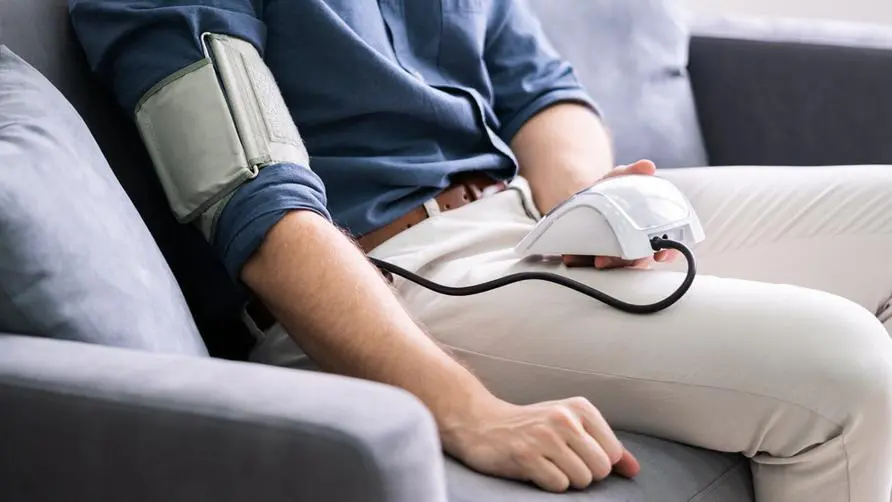Is anger, restlessness and strenuous exercise likely to induce stroke? Study: Risk increases by 30% in 1 hour

Mood triggers stroke? Anger, emotional upset, strenuous exercise increase risk, study says
Poor control of the three high blood pressure and obesity are the main risk factors for stroke. However, is the sudden onset of stroke related to specific triggers? Do anger, emotional agitation and strenuous exercise really trigger strokes? A recent study published in the “European Heart Journal” believes that anger, emotional instability, strenuous exercise, etc. may lead to increased sympathetic nervous tension, thereby increasing the risk of stroke. The research team claims that these risk factors should be used to prevent secondary strokes. Principles of care.
“Is my stroke caused by emotions and stress? This is a question many patients ask neurologists. Stroke not only severely affects physical and mental health, but what is even more worrying is that certain triggers may occur repeatedly in the future!” study author , said Susanne Wegener, a neurologist at the University Hospital of Zurich.
The “INTERSTROKE” research project led by Wegener collected data from 13,462 stroke patients in more than 32 countries to further analyze whether specific emotional and physiological factors will increase the probability of inducing myocardial ischemia, lead to intense sympathetic nerve activity, and then promote coronary heart disease. The arteries constrict, causing blood clots or bleeding.
Risk of stroke increases by 30% 1 hour after experiencing negative emotions?
The goal of the study is to identify potential stroke triggers, including conditions such as “anger,” “emotional upset,” and “intense physical exertion,” by interviewing patients through questionnaires 72 hours after their stroke. Compare whether you experienced anger, restlessness, or strenuous exercise during the hour, and your lifestyle at the same time the day before. Stratified statistics were then conducted based on age and traditional risk factors.
The study results pointed out that 9.2% of people experienced anger, emotional uneasiness, etc. before stroke; 5.3% of patients said they were doing strenuous exercise before stroke. Stroke patients who were younger, male, had a higher BMI, were more educated, and had higher levels of depression in the past were more likely to report anger and emotional upset before the stroke.
Among them, patients who reported engaging in strenuous exercise before stroke were mostly younger men and smokers without a history of diabetes. These people usually exercise more and have higher systolic blood pressure when they go to the hospital emergency room. Wegener claimed in the study results that the risk of stroke increased by about 30% within one hour after experiencing negative emotions such as anger and emotional upset.
In addition, when analyzing whether two different types of emotional and physiological triggers have different effects on ischemic and hemorrhagic strokes, the research team found that anger and emotional upset are related to “all types” of strokes. Physical activities that consume a lot of energy are more related to hemorrhagic stroke. It is further pointed out that the probability of stroke after strenuous exercise is highest in women and lowest in healthy weight groups.
There is no causal relationship between stress and stroke.
Wegener said that the data collected in this study is quite large and complete, and the proportion of anger and emotional upset before stroke is very common. Compared with the control data, it is reasonable to suspect that this is a predisposing factor for stroke, but these conclusions are not yet clear. No clear causal relationship can be drawn. A more scientific speculation is that when the human body is upset, it is more likely to suffer from vasoconstriction, arrhythmia, and sympathetic nervous system disorders, and it also promotes the secretion of adrenaline and other hormones such as catecholamines.
Even looking at the data on acute myocardial infarction (AMI) alone, strenuous exercise, anger, and emotional upset are all related to an increased chance of acute myocardial infarction. Wegener believes that most people will inevitably face situations such as anger and emotional uneasiness, and the intensity of exercise should be within their capabilities. The results of this study may be more important for secondary prevention of high-risk groups in the future, and also reveal a considerable extent about the relationship between negative emotions and stress. Pathological evidence of how cardiovascular disease is affected.
A review from Harvard Medical School concluded that although the study pointed to a temporal association between anger, emotional upset, and strenuous exercise and stroke, the evidence was not convincing enough.
source:
Further reading:





